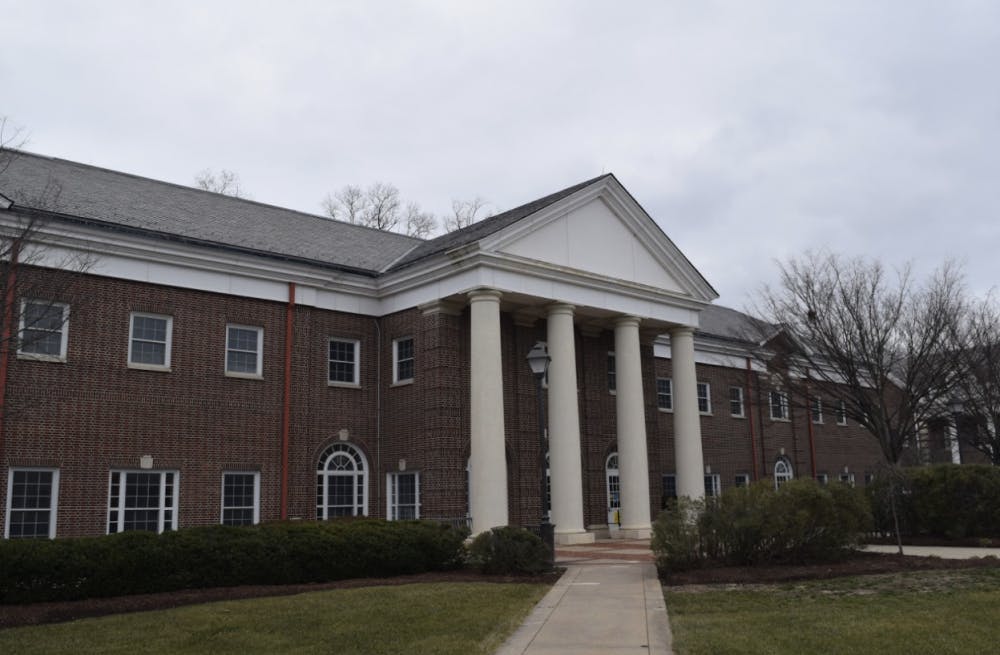By Kevin Hornibrook
Staff Writer
The College held the last of three virtual panels on April 9 featuring faculty members who discussed political trends surrounding the riots at the Capitol on Jan. 6. The event was the third and final installment of a series of discussions on the insurrection.
The panel was moderated by President Kathryn Foster and featured Dr. Sarah Chartock, Dr. Jarret Crawford, Professor Emilie Lounsberry and Dr. Nicholas Toloudis. Each professor shared insights from their professional experiences in the fields of political science, psychology, journalism and international studies, respectively.
The event was co-sponsored by the Office of the President, the Office of Academic Affairs, the Division of Inclusive Excellence and the Department of Political Science.
After introductions by Foster, the event, titled “The Rise of Authoritarianism and the Failure of American Political Institutions,” moved into Crawford’s historical analysis of right-wing authoritarianism. He began by drawing from the work of 20th century psychologists Theodor Adorno and Stanley Milgram to explain the relation between psychology and authoritarianism.
He then recounted several instances of former President Donald Trump and his supporters exhibiting the behaviors that had been observed in previous authoritarian regimes, such as calls for violence and enforcing submission and aggression or quotes from Trump such as, “Do you know what they used to do to guys like that when they were in a place like this? They’d be carried out on a stretcher.”
“It’s important to recognize that not only do all of these remarks predate the Jan. 6, 2021 insurrection of the Capitol by Trump’s followers, they predate the November 2020 election itself,” Crawford said.
Journalism professor Emilie Lounsberry followed to inform attendees of the evolution of news coverage throughout the Trump presidency. She described how Trump and his supporters weaponized disdain for the media with terms like “media mob” or “lamestream media” to their advantage.
Lounsberry shared concerns with the current state of how news is spread, noting partisan media outlets, social media and lower funding for traditional forms of news.
“Unfortunately for a lot of people, the bottom line is [they] get confused. You don't know where to get reliable information, or, you’ve been propagandized into thinking the news media is bad,” she said.

Chartock explored the similarities between the events of Jan. 6 and Latin American self-coups. She mentioned the issues that arise with presidential systems that don’t often appear with parliamentary ones, namely that electing an executive figure separate from the legislature allows authoritarian populists to achieve power much more effectively.
She pointed out how many countries that experienced attempted self-coups managed to attain democratic growth in the few years after the incident, something she hopes to see happen in the U.S.
“Will January 6 be that spark that shines a light on the decline that our democracy has undergone for years and ignites an effective call to action?” Chartock asked.
Toloudis recounted pieces of American history relevant to current events, including voting rights and how modern political parties were shaped. He believes that democracy in the United States is “stuck,” with the Republican party committed to restricting access to voting due to unfounded claims of massive voter fraud and the Democratic party not willing to administer institutional change.
“In a country with only two major parties, that is a bad situation to be in,” Toloudis said.
In the Q&A section, panelists were tasked with presenting solutions going forward to prevent any further rise of authoritarianism. The professors agreed that aside from restructuring American government into a parliamentary system, the most achievable solution is to strengthen voting rights and facilitate participation in elections.
“We hope that this series helped us to better understand the moment and, even more importantly, reinforce the scholarly excellence at TCNJ,” Foster said to conclude the event.







